Voice Identity Compliance in Financial Customer Service
Banks, insurers, and other high-risk industries increasingly adopt AI voice changers to optimize customer service efficiency. However, undisclosed synthetic voices now face legal scrutiny under Consumer Protection Law (Articles 8 & 20), which mandates identity transparency. This article analyzes why authentic voice disclosure is non-negotiable in financial services and how to implement compliant systems.
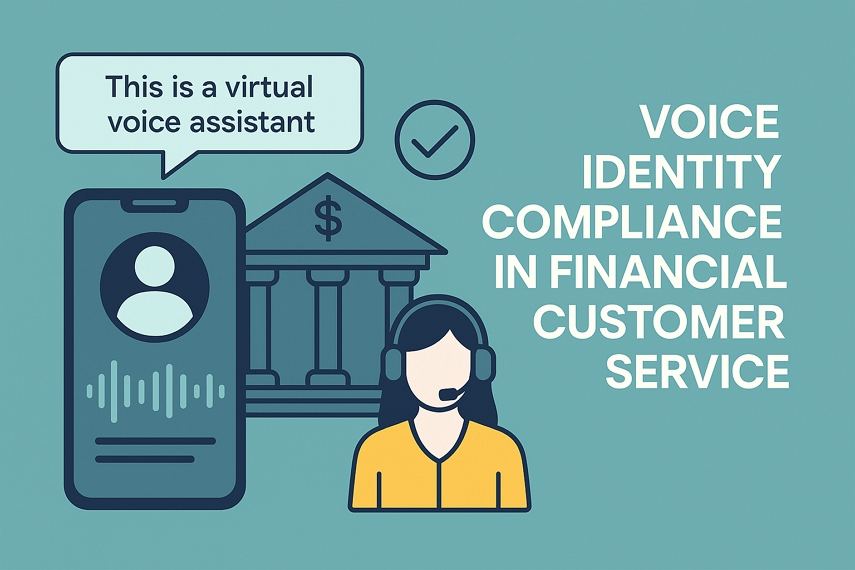
Part 1: Legal Obligations for Voice Identity Transparency
Financial institutions must balance technological innovation with legal accountability. China's consumer protection framework imposes strict identity disclosure rules, where failing to distinguish AI voices from humans can lead to severe penalties. Below are the core legal anchors shaping compliance requirements.
This section explains the relevant legal obligations and highlights how undisclosed use of AI voices could expose enterprises to significant regulatory risks.
Consumer Protection Law Fundamentals
- Article 8: Grants customers the right to know whether they are interacting with humans or AI systems.
- Article 20: Mandates upfront disclosure of "non-human service identities" to prevent deceptive practices.
- Penalties: Fines up to 10x the illegal gains for violations, as seen in a 2023 case where a bank faced a ¥2.3M fine for masked AI voices.
Sector-Specific Regulations
- CBRC Guidelines: Article 14 enforces "identity authenticity" across all customer-facing interactions, including voice channels.
- GDPR Implications: For institutions operating globally, synthetic voice data processing requires prior user consent under Article 9(1).
Enforcement Example
In 2023, a major Chinese bank was fined 2.3 million RMB for failing to inform customers that their voice interactions were handled by AI-generated voices, leading to miscommunication and customer complaints.
Part 2: Compliance Framework for Voice Changer Systems
Acknowledging legal obligations is just the first step-financial institutions must operationalize compliance through concrete mechanisms. This includes designing both user-facing disclosures and technical safeguards within AI voice systems to ensure regulatory alignment and build user trust.
This section outlines two key pillars for creating a compliant voice changer system: disclosure protocols and technical implementation standards.
1. Mandatory Disclosure Mechanisms
To meet legal standards, financial institutions must establish clear and timely disclosure practices:
- Start-of-Call Notification: Within the first 5 seconds, a message such as "This is a virtual voice assistant. Your call may be recorded for compliance purposes."
- Ongoing Indicators: Add periodic audio watermarks or cues every 2 minutes to remind users that they are communicating with an AI agent.
- Content Requirements: The disclosure must include:
- Type of service (AI or human)
- Purpose of the call and data usage
- Option to switch to a human agent
2. Technical Implementation Standards
A compliant voice changer system should also include:
- Traceability: Synchronize timestamps of voice disclosure and call recording for auditing
- Synthetic Voice Markers: Use algorithmic constraints (e.g., specific frequency ranges) to ensure AI voices are distinguishable from real human voices
- System Segregation: Maintain clear signal paths and switch logs between AI and human agents
Part 3: Building a Compliant AI Voice Service System
While technology enables faster and smarter customer service, compliance must be embedded into daily operations. Simply installing a voice changer tool is not enough-financial institutions must integrate legal and ethical standards into internal workflows, staff training, and service platforms.
Here are practical strategies to help companies implement a responsible and compliant AI voice service system:
- Disclosure Templates: Include voice or visual prompts as part of standard call scripts
- Staff Training: Train internal teams to recognize high-risk scenarios and apply disclosure requirements correctly
- Compliance Modules: Integrate features like pre-recorded compliance intros, logging tools, and call escalation options into customer service system
Part 4: How to Use HitPaw VoicePea for Legal & Ethical Voice Changing
HitPaw VoicePea is a real-time voice changer that allows users to modify their voice into various characters and tones using advanced AI-driven algorithms. While commonly used for streaming, gaming, and content creation, VoicePea is also highly suitable for enterprise-grade customer service scenarios - especially when transparency and voice identity differentiation are key.
For financial customer service, VoicePea offers essential features that align with legal compliance needs:
- Customizable Opening Prompts: Automatically play a preset voice disclaimer when the call starts, meeting Article 20 and CBIRC guidelines
- Multi-Voice Profiles: Choose from a variety of virtual voices suitable for different service scenarios, while maintaining distinguishable AI traits
- Real-Time Conversion: Enjoy low-latency, high-fidelity voice conversion that enhances user experience while ensuring ethical transparency
Step 1. Download and Install
Download HitPaw VoicePea according to your operating system (Windows or Mac), and follow the on-screen instructions to complete the installation.
Step 2. Configure Input & Output Device
Open the program, and go to the Settings panel. Under the Audio tab, select the input and output you are using on computer.
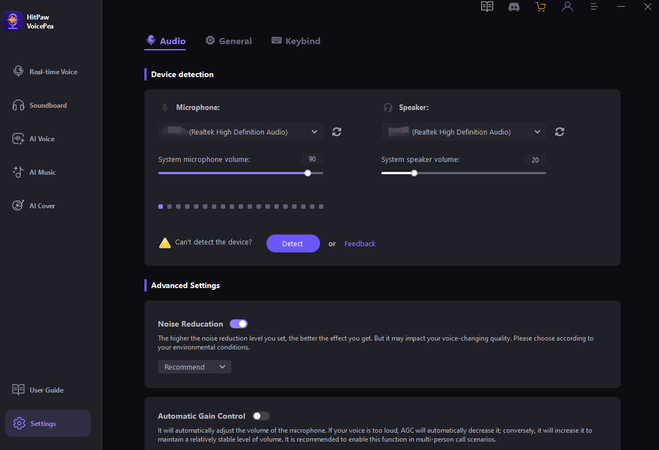
Step 3. Select Voice and Sound Effect
HitPaw VoicePea provides hundreds of built-in voices to choose. You can select female or male sound, or use a AI sound with custom settings.

Step 4. Rela-Time Preview
At the bottom line of the program interface, turn on the "Voice Changer" and "Hear myself". Try to speak to your microphone to listen how your voice sound like.
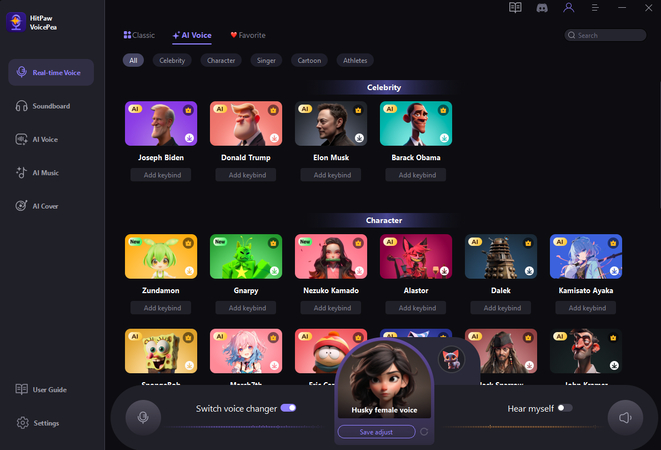
Step 5. Start Generating AI Voice
Once you choose the desired sound effects, you can adjust the voice settings and make your own AI sound.
Conclusion
Voice-changing technology is an excellent tool to enhance communication efficiency, but in sensitive industries like finance, transparency and legal compliance must come first.
When deploying AI-generated voices, businesses should adopt a "disclose-first, serve-later" approach, embedding user rights and identity clarity into every call.
Choosing compliance-ready tools like HitPaw VoicePea, combined with standardized operating procedures, is essential for building customer trust and avoiding costly penalties.








 HitPaw Univd (Video Converter)
HitPaw Univd (Video Converter) HitPaw VikPea (Video Enhancer)
HitPaw VikPea (Video Enhancer)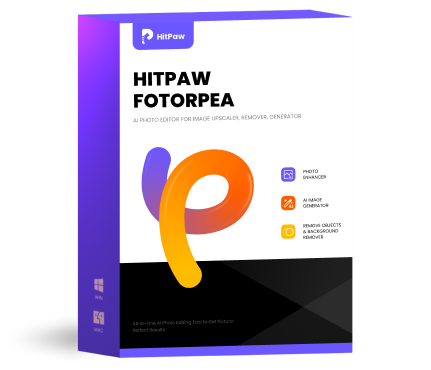 HitPaw FotorPea
HitPaw FotorPea

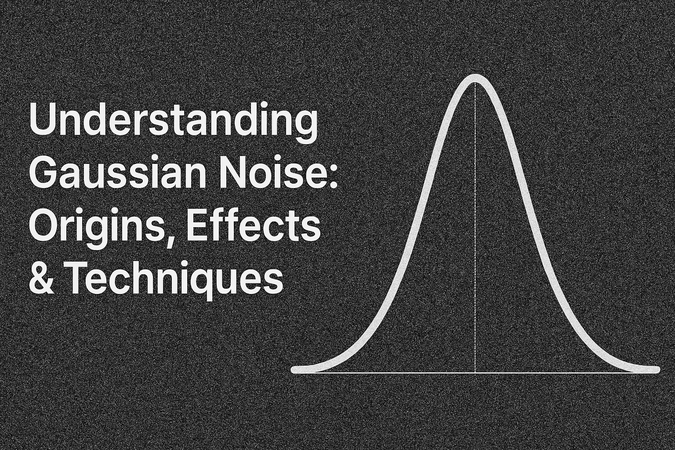


Share this article:
Select the product rating:
Daniel Walker
Editor-in-Chief
This post was written by Editor Daniel Walker whose passion lies in bridging the gap between cutting-edge technology and everyday creativity. The content he created inspires the audience to embrace digital tools confidently.
View all ArticlesLeave a Comment
Create your review for HitPaw articles